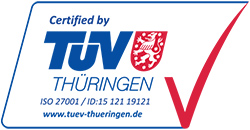Check .lt domain
Which country's court to apply to when a dispute regarding .lt second level domain name is of international nature?
Until 1 October 2018, Lithuanian courts processed 33 cases regarding the domain name with foreign element (31.43% of all the cases of this type).
Even though doctrine still lacks a consensus regarding the jurisdiction with regards to the internet or domains, there are current legal acts containing conflict-of-law rules.
In case of a dispute between the European Union residents, from 10 January 2015, the jurisdiction is set according to the Brussels I Regulation (Regulation (EU) No. 1215 / 2012 on jurisdiction and the recognition and enforcement of judgments in civil and commercial matters).
In case of a dispute between the European Union and / or European Free Trade Association residents, from 1 January 2011, the jurisdiction is set according to the new Lugano Convention (Convention on jurisdiction and the recognition and enforcement of judgments in civil and commercial matters). This convention is open for the joining of the third parties.
The general principle established in Brussels I Regulation and new Lugano Convention – jurisdiction in civil and commercial cases is set according to the defendant’s permanent place of residence / head office. Moreover, they define the cases of special jurisdiction (for example, cases regarding a tort, delict or quasi-delict) and establish the exclusive jurisdiction (for example, cases regarding the registration or validity of patents, trademarks, designs, or other similar rights required to be deposited or registered).
In practice, the rule of the exclusive jurisdiction has been applied in the cases regarding domain names by default until now – in case of a dispute regarding .lt second level domain name (22 cases between the residents of various European Union Member States were processed in the Lithuanian courts during the period considered), the claimants apply to the Lithuanian courts, i.e., according to the place of the registration of the disputed domain name, but not necessarily according to the permanent place of residence / head office of the defendant. It may be explained by the attempts to simplify the application of provisional safeguards and enforcement of judgement. Lithuanian courts accepted these claims without comments on the jurisdiction.
Therefore, if a dispute regarding .lt second level domain name arises between the European Union and / or European Free Trade Association residents, the claim is to be submitted to the Lithuanian court (by analogy – to Vilnius Regional court), until the jurisdiction rules are not interpreted otherwise.
In case of a dispute, when one (9 such cases were processed in the Lithuanian courts during the period considered) or both parties (2 cases) are the residents of the third country where neither Brussels I Regulation nor new Lugano Convention are applied, the case’s jurisdiction is to be set according to the conflict-of-law rules established in the national legislation. If a claim is submitted against .lt second level domain holder, the case can be considered as the jurisdiction of the Lithuanian courts according to Article 787 paragraph 2 of the Code of Civil Procedure of the Republic of Lithuania, i.e., as the defendant has property or property rights in Lithuania.
In some cases, second level domain names registered in other top-level domains (for example, .eu, .lv, .ee, .net) were disputed simultaneously with .lt second level domain name. .lt registry has no comments regarding the application of the jurisdiction in case the dispute subject is not .lt second level domain name.



